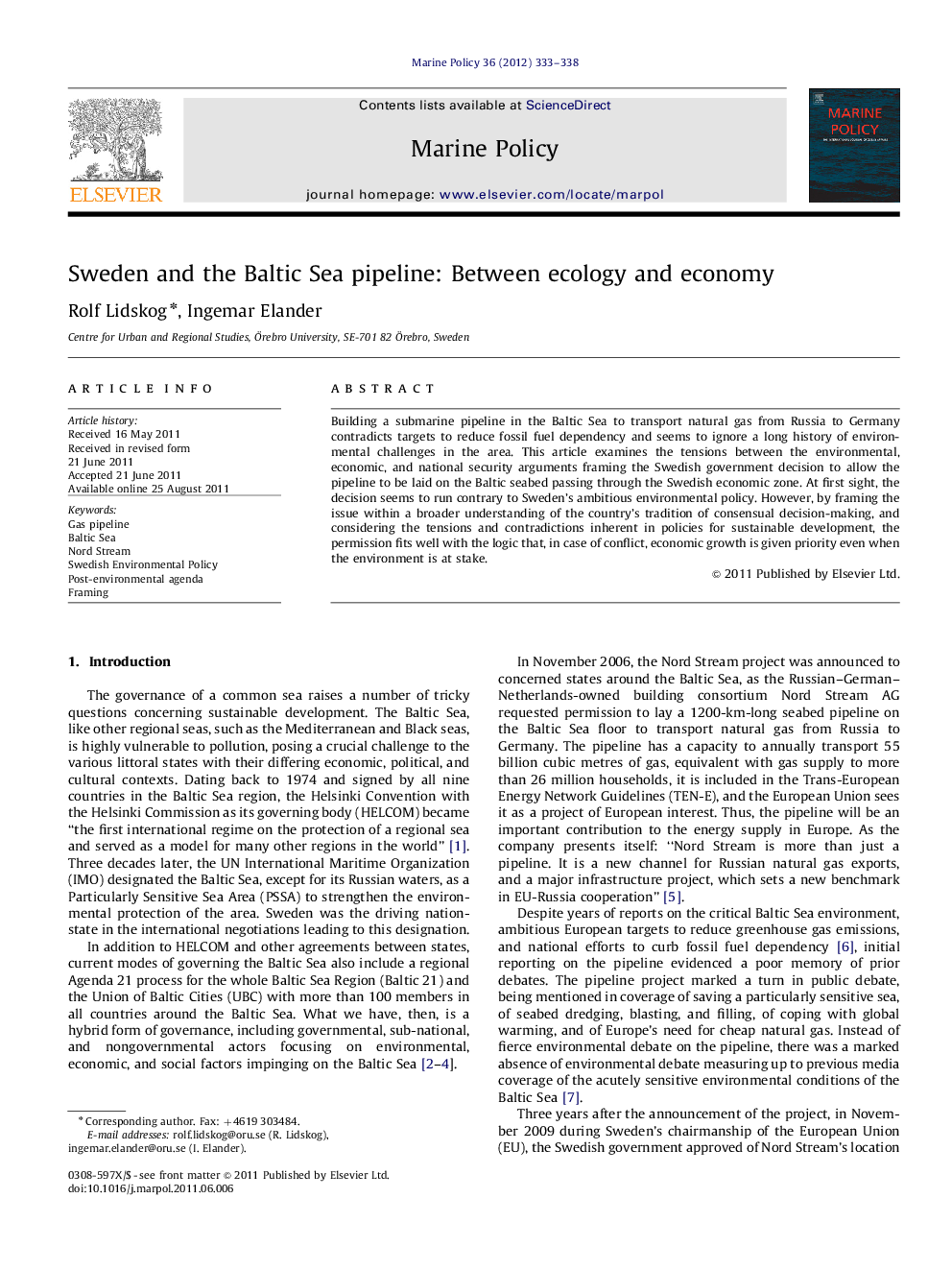| کد مقاله | کد نشریه | سال انتشار | مقاله انگلیسی | نسخه تمام متن |
|---|---|---|---|---|
| 1060459 | 947626 | 2012 | 6 صفحه PDF | دانلود رایگان |

Building a submarine pipeline in the Baltic Sea to transport natural gas from Russia to Germany contradicts targets to reduce fossil fuel dependency and seems to ignore a long history of environmental challenges in the area. This article examines the tensions between the environmental, economic, and national security arguments framing the Swedish government decision to allow the pipeline to be laid on the Baltic seabed passing through the Swedish economic zone. At first sight, the decision seems to run contrary to Sweden's ambitious environmental policy. However, by framing the issue within a broader understanding of the country's tradition of consensual decision-making, and considering the tensions and contradictions inherent in policies for sustainable development, the permission fits well with the logic that, in case of conflict, economic growth is given priority even when the environment is at stake.
► The environmental situation of Baltic Sea is severe.
► The pipeline was framed as a project with no serious environmental effects.
► Economic growth is given priority even when the environment is at stake.
► The framing of an issue is crucial.
Journal: Marine Policy - Volume 36, Issue 2, March 2012, Pages 333–338